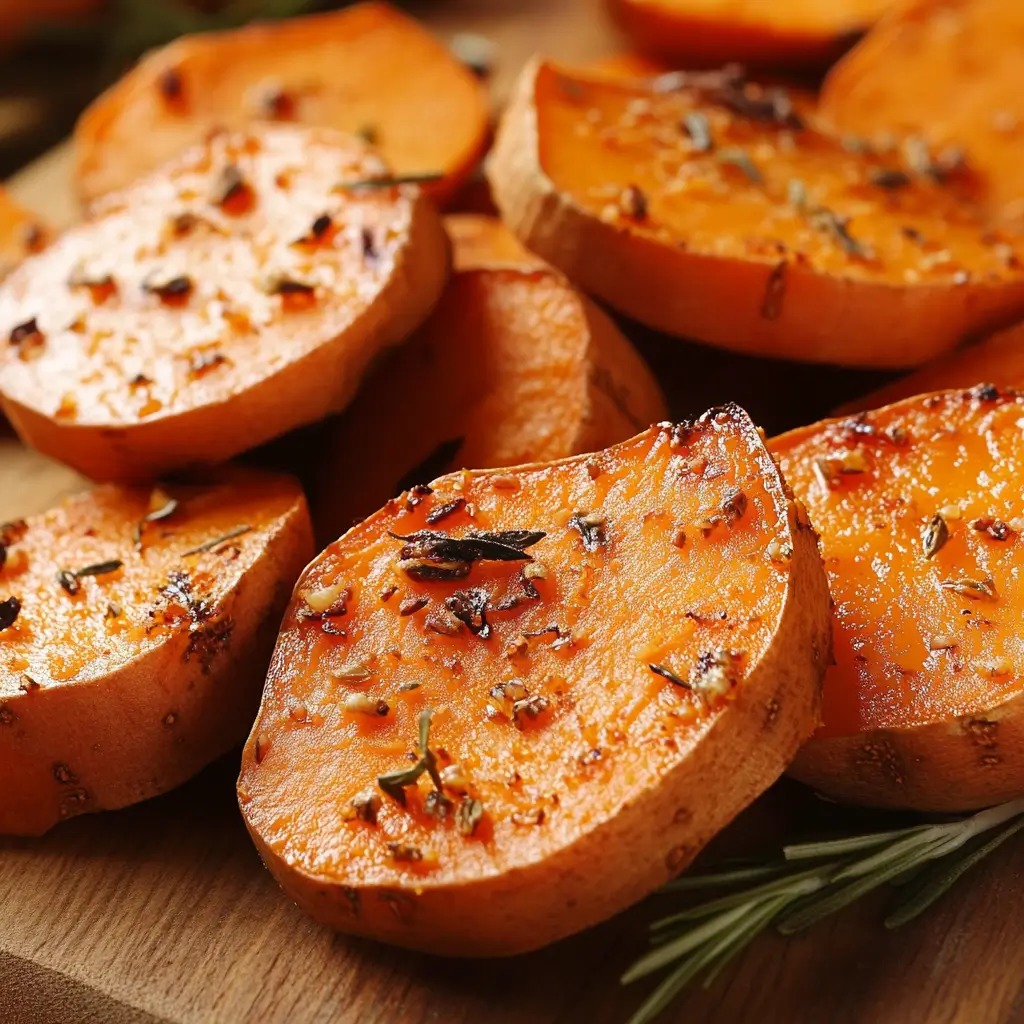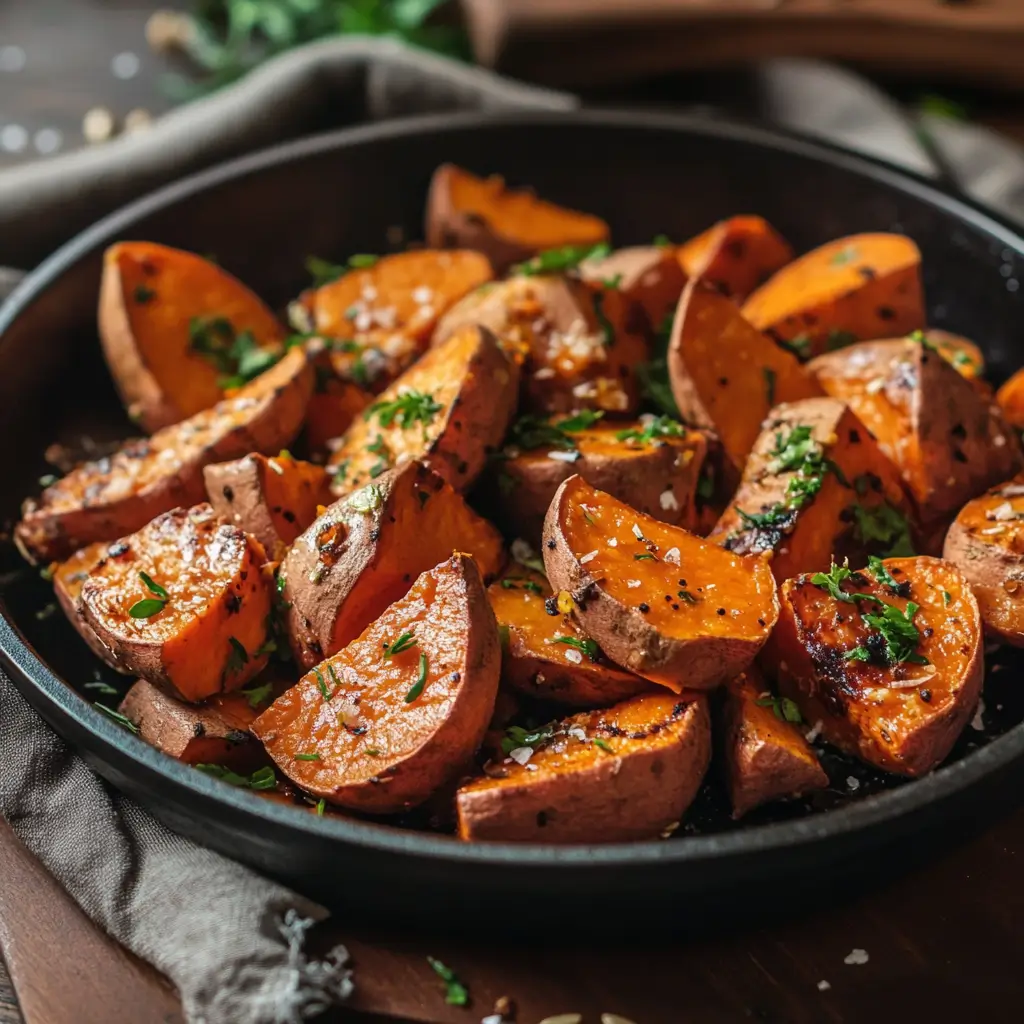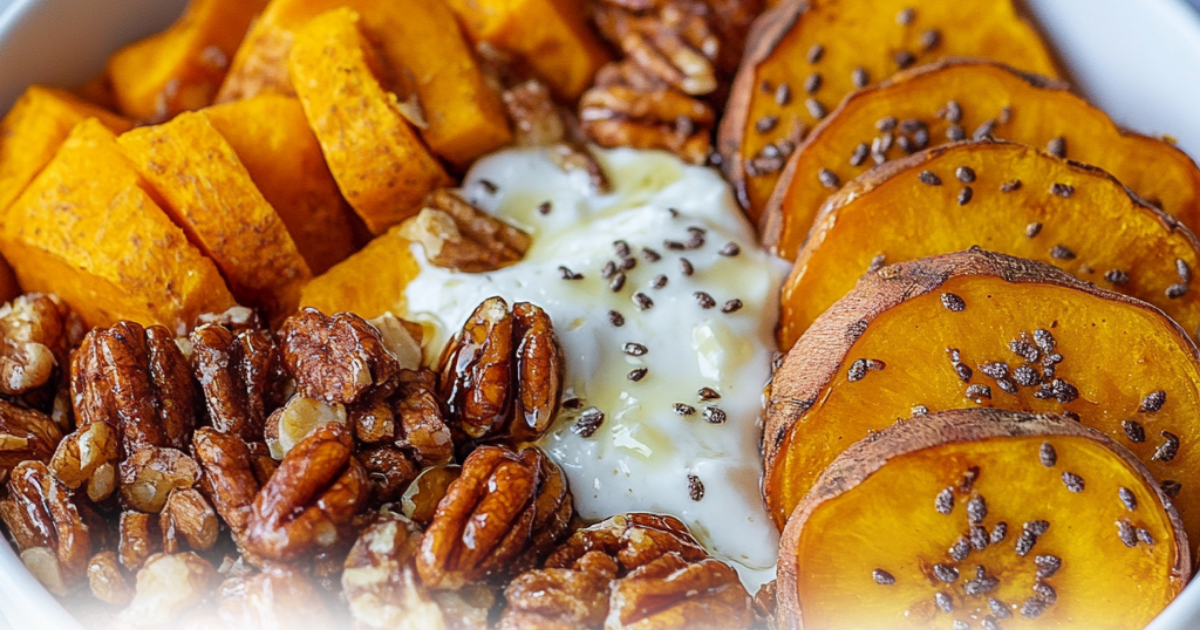Sweet potatoes are hailed as a versatile and nutrient-packed food, making them a popular choice for all meals, including breakfast. But can I eat sweet potato every morning? This article dives deep into the nutritional benefits, potential risks, creative ways to incorporate them into your diet, and how they compare to other breakfast staples. By the end, you’ll know if sweet potatoes deserve a spot on your daily breakfast plate.
Table of Contents
Nutritional Profile of Sweet Potatoes
What Makes Sweet Potatoes a Superfood?
Sweet potatoes have earned their reputation as a superfood thanks to their rich nutrient profile. Packed with vitamins, minerals, and antioxidants, they’re a powerhouse of health benefits. They’re also low in fat and calories, making them a guilt-free addition to your morning routine. But what truly sets them apart is their versatility—they can be baked, mashed, roasted, or even turned into toast!

Key Nutrients in Sweet Potatoes: Fiber, Vitamins, and Antioxidants
Each serving of sweet potato is loaded with essential nutrients. They’re a fantastic source of vitamin A, which supports vision and boosts your immune system. Plus, they contain vitamin C, potassium, and manganese. The high fiber content not only promotes gut health but also keeps you feeling full longer, making them an excellent breakfast choice. And don’t forget about their powerful antioxidants, which help combat inflammation and protect your cells from damage.
Calorie and Carbohydrate Breakdown for Morning Energy
For those seeking a natural energy boost, sweet potatoes provide a steady release of energy, thanks to their complex carbohydrates. A medium-sized sweet potato contains around 112 calories, 26 grams of carbs, and 2 grams of protein. Unlike refined carbs, these complex carbs ensure you won’t experience the mid-morning slump.
Sweet potatoes combine nutrition and taste, making them a breakfast star. But is eating them every day the right choice for you? Let’s find out in Part 2 as we explore their health benefits.
Health Benefits of Eating Sweet Potatoes Daily
Boosting Immunity with Vitamin A
Sweet potatoes are brimming with vitamin A, which plays a key role in strengthening your immune system. Just one medium sweet potato delivers more than 100% of your daily vitamin A requirement. This essential nutrient helps your body fight off infections and keeps your skin healthy too. So, if you’re wondering, “Can I eat sweet potato every morning?”, the immune-boosting benefits alone make a strong case.

Digestive Benefits from High Fiber Content
Starting your day with sweet potatoes can work wonders for your digestion. Thanks to their high fiber content, sweet potatoes help regulate bowel movements and prevent constipation. The type of fiber found in sweet potatoes also supports a healthy gut microbiome by feeding the beneficial bacteria. Plus, the slow-digesting carbs in sweet potatoes keep your blood sugar steady throughout the morning.
Energy and Mood Regulation Through Complex Carbohydrates
Ever feel sluggish mid-morning? Sweet potatoes might be the solution. Their complex carbs provide a steady release of energy, unlike sugary breakfast cereals that lead to crashes. They’re also rich in vitamin B6, which helps produce serotonin—the “feel-good” hormone. This combination of sustained energy and mood-boosting properties makes them a fantastic breakfast choice.
Supporting Heart Health with Potassium
Sweet potatoes are rich in potassium, a mineral that’s crucial for maintaining healthy blood pressure. Eating potassium-rich foods helps counteract the effects of sodium, reducing the risk of heart disease. So, making sweet potatoes a regular part of your breakfast can support your heart health in the long run.
Potential Risks and Considerations
Excessive Vitamin A Intake: Is It a Problem?
While sweet potatoes are undeniably nutritious, overindulging can have drawbacks. They’re extremely high in beta-carotene, which converts to vitamin A in the body. Consuming too much vitamin A, especially through supplements, can lead to toxicity. However, this is rarely an issue when vitamin A is derived from food. Still, if you’re eating sweet potatoes every morning, it’s good to balance them with other foods.
Impact on Blood Sugar Levels for Diabetics
For those with diabetes, sweet potatoes can be a double-edged sword. While their low glycemic index (GI) makes them a better choice than regular potatoes, they still contain carbs that can raise blood sugar. Pairing sweet potatoes with a source of protein or healthy fats, like eggs or avocado, can help minimize blood sugar spikes.
Allergies and Individual Sensitivities to Sweet Potatoes
Although rare, some people may have sensitivities or allergies to sweet potatoes. Symptoms might include skin irritation or digestive discomfort. If you’re introducing sweet potatoes into your diet for the first time, start with small portions and observe how your body reacts.
Sweet potatoes offer incredible health benefits, but understanding these potential risks ensures a balanced approach. Coming up next, we’ll explore creative and delicious ways to enjoy sweet potatoes every morning!
Creative Ways to Eat Sweet Potatoes Every Morning
Easy Recipes for Sweet Potato Breakfast Bowls
Sweet potato breakfast bowls are a quick and customizable way to start your day with this nutritious veggie. Roast diced sweet potatoes until they’re tender and slightly caramelized, then top them with your favorites like yogurt, granola, and a drizzle of honey. Want to add some crunch? Sprinkle nuts or seeds. This dish isn’t just tasty; it’s loaded with fiber, antioxidants, and energy-boosting carbs.
For more inspiration, check out this sweet potato breakfast bowl recipe for a detailed guide.
Pairing Sweet Potatoes with Eggs and Avocado
One of the simplest and most satisfying ways to enjoy sweet potatoes in the morning is by pairing them with eggs and avocado. Slice a baked sweet potato in half and top each half with a poached egg and mashed avocado. The combination of healthy fats, protein, and carbs ensures you’ll feel full and energized for hours. If you’re still asking, “Can I eat sweet potato every morning?”, this recipe answers with a resounding yes.
Making Sweet Potato Toast: A Low-Calorie Bread Alternative
For a unique twist on traditional toast, try sweet potato slices as a base. Simply slice a sweet potato lengthwise, roast or toast the slices, and top them with your favorite spreads like almond butter, cream cheese, or even hummus. This gluten-free alternative is perfect for those looking to switch things up while keeping breakfast light and healthy.
Comparisons with Other Breakfast Foods
Sweet Potatoes vs. Oats: Nutritional Differences
When it comes to starting your day, oats and sweet potatoes are both strong contenders. Oats are rich in soluble fiber, which can help reduce cholesterol, while sweet potatoes shine with their vitamin A and antioxidant content. Oats may provide more protein, but sweet potatoes deliver a broader range of nutrients like potassium and vitamin C. If you’re asking, “Can I eat sweet potato every morning?”, know that they offer a more diverse nutrient profile compared to oats.
Sweet Potatoes vs. Regular Potatoes for Morning Energy
Unlike regular potatoes, sweet potatoes have a lower glycemic index, meaning they release energy more slowly. This makes them ideal for sustained energy without blood sugar spikes. They also contain more fiber and antioxidants. While regular potatoes might be a breakfast staple for many, sweet potatoes offer a healthier, more nutrient-dense alternative.
Why Sweet Potatoes Are More Versatile Than Bananas
Bananas are often seen as a quick, energy-packed breakfast food, but sweet potatoes hold their own. Both are rich in potassium, but sweet potatoes provide more fiber and fewer natural sugars. Additionally, sweet potatoes are more versatile—you can bake, mash, roast, or even toast them. If you’re considering variety, sweet potatoes win hands down.
FAQs About Eating Sweet Potatoes Every Morning
Is Eating Sweet Potatoes Every Morning Safe?
Absolutely! Sweet potatoes are packed with vitamins and minerals that make them a healthy breakfast choice. However, moderation is key to avoid consuming too much vitamin A. Pairing them with diverse foods ensures a balanced diet.
Can Sweet Potatoes Replace Breakfast Cereals?
Yes, and they might be even better! Sweet potatoes provide complex carbohydrates and fiber without the added sugars found in many cereals. Plus, they’re versatile enough to pair with both sweet and savory toppings.
What Are Some Quick Sweet Potato Breakfast Ideas?
If you’re short on time, roasted sweet potato cubes prepped in advance can be reheated and topped with almond butter and bananas. Sweet potato toast is another speedy option. For something heartier, try a quick hash with diced sweet potatoes, onions, and scrambled eggs.
For more recipe ideas, you can explore Is Sweet Potato Good for Morning Breakfast? and discover creative ways to enjoy this morning superfood.
Conclusion: Should You Eat Sweet Potatoes Every Morning?
After exploring the nutritional benefits, risks, and delicious ways to prepare sweet potatoes, it’s clear they make an excellent breakfast choice. Packed with fiber, vitamins, and complex carbohydrates, they provide lasting energy and essential nutrients to start your day right. Whether you roast them, mash them, or turn them into toast, sweet potatoes can fit into almost any breakfast routine.
But is it wise to eat them daily? For most people, the answer is yes—especially when balanced with other healthy foods. Sweet potatoes are versatile enough to prevent breakfast boredom and nutritious enough to support overall health. However, moderation is key, especially for those concerned about blood sugar levels or vitamin A intake.
So, can I eat sweet potato every morning? Absolutely, as long as you balance them with other nutrient-dense foods. Sweet potatoes are a fantastic addition to a healthy breakfast lineup, making your mornings not only tastier but also healthier.

